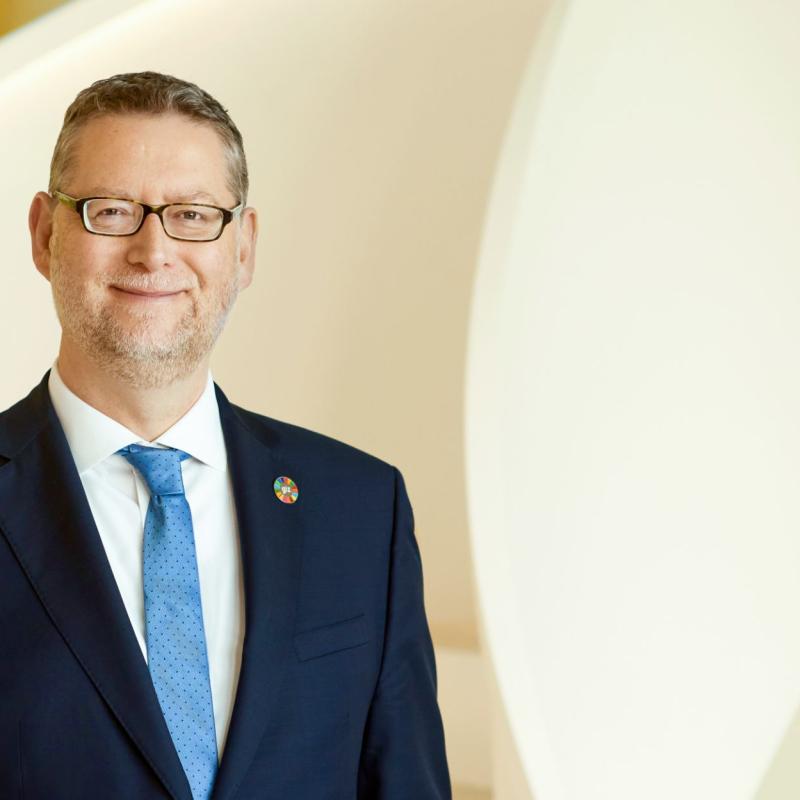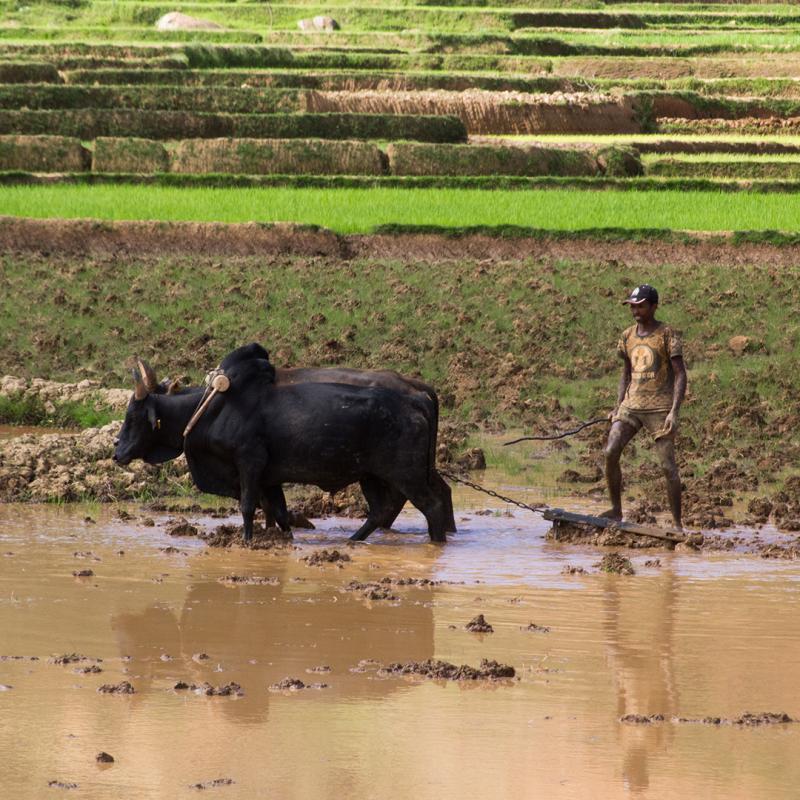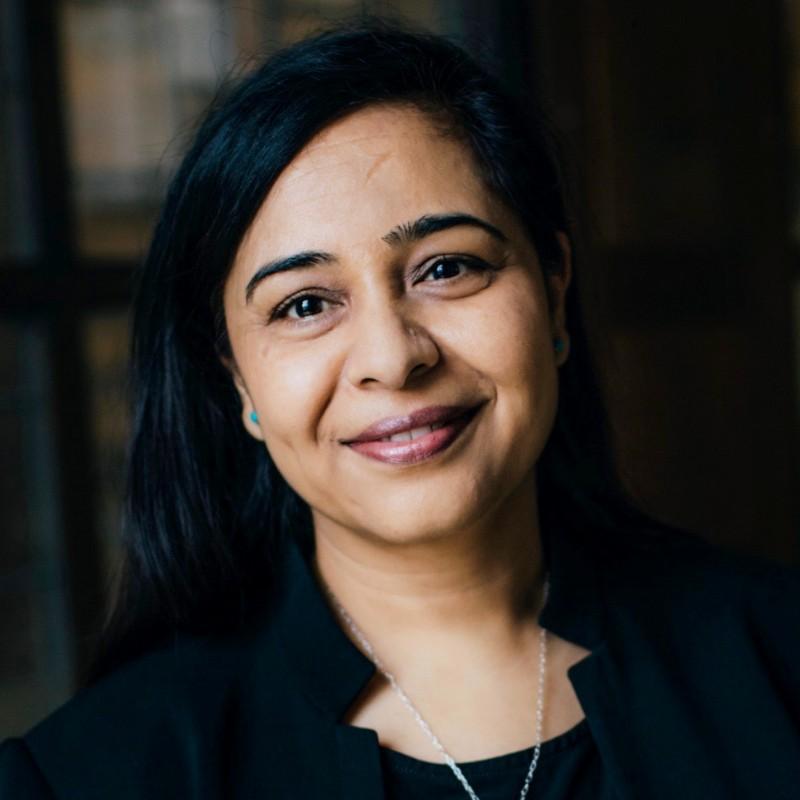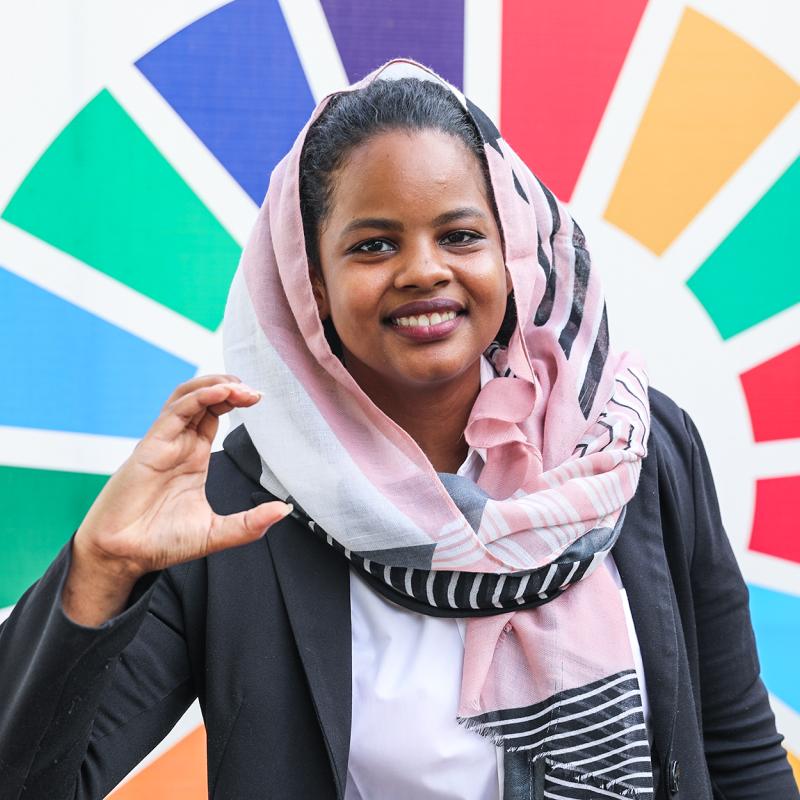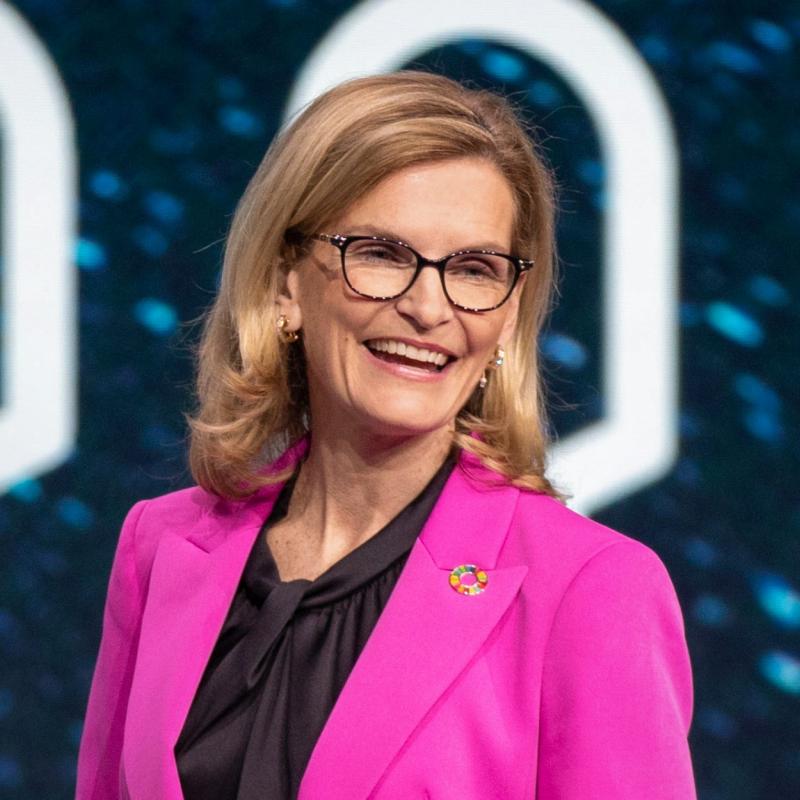 Andriy Krepkykh/UNDP Ukraine
Andriy Krepkykh/UNDP Ukraine
‘The SDGs are the best way to avert an apocalyptic future’
The world is facing uncertain times, and geopolitical tensions are on the rise. Can the Sustainable Development Goals (SDGs) be upheld? Achim Steiner, Administrator of the UN Development Programme, believes that they are more relevant than ever. In this interview, he explains why.
Mr Steiner, in view of the overall geopolitical situation, achieving the SDGs seems to be becoming a more distant prospect. What needs to happen to change that?
Important meetings are on the international agenda for the later part of 2024, beginning with the Summit of the Future in New York, followed soon after that by the Hamburg Sustainability Conference, a UN Conference on Biological Diversity in Cali and finally the annual UN Climate Change Conference in Baku. The rest of this year is full of opportunities for us to make progress on sustainability, but the results of the SDGs so far in a global context make for very sobering reading.
What do you mean by ‘global context’?
If we add together what has been achieved so far and divide it by 193, the number of UN member states, the result is certainly not satisfactory. But looking at results on a global scale blurs some of the details. We are currently seeing large differences and in some areas astonishing breakthroughs too. Let’s take renewable energy as an example: progress is almost non-existent in some countries, while in others, such as Uruguay and Kenya, more than 90 per cent of electricity is now generated using renewable energy. Another example is the internet: 5.4 billion people now have access – more than the world’s total population at the beginning of the 1990s. That, too, is a rapid development that we would not have been able to predict even just ten years ago.
Doesn’t that hide the shortcomings?
I certainly don’t want to use comparisons such as these as a pretext to gloss over problems, but we shouldn’t go to the other extreme either. After all, progress has been made, above all at the level of individual states, which shows that it is very dependent on the will and the possibilities of each country.
Which are the SDGs where we are lagging behind the most?
At the moment, we are seeing setbacks primarily in connection with investments that determine people’s quality of life: food insecurity and hunger are on the rise again, the level of education that children are attaining is stagnating, and health systems are not being allocated the funding they need to deliver basic health care. This situation is exacerbated by climate change: admittedly, most people have accepted that it poses a challenge, but the pace of transformation is too slow.
Why is that? A lack of awareness, conflicts or other priorities?
There are a whole range of reasons here: the COVID-19 pandemic has left its mark, combined with other factors, of which conflicts are an obvious one. In addition, the poorest countries in particular are struggling to cope with inflation along with high interest rates and a huge debt burden, leaving little room for investment in the education or health sector. All this is creating uncertainty about the future and is causing increasing polarisation in many countries.
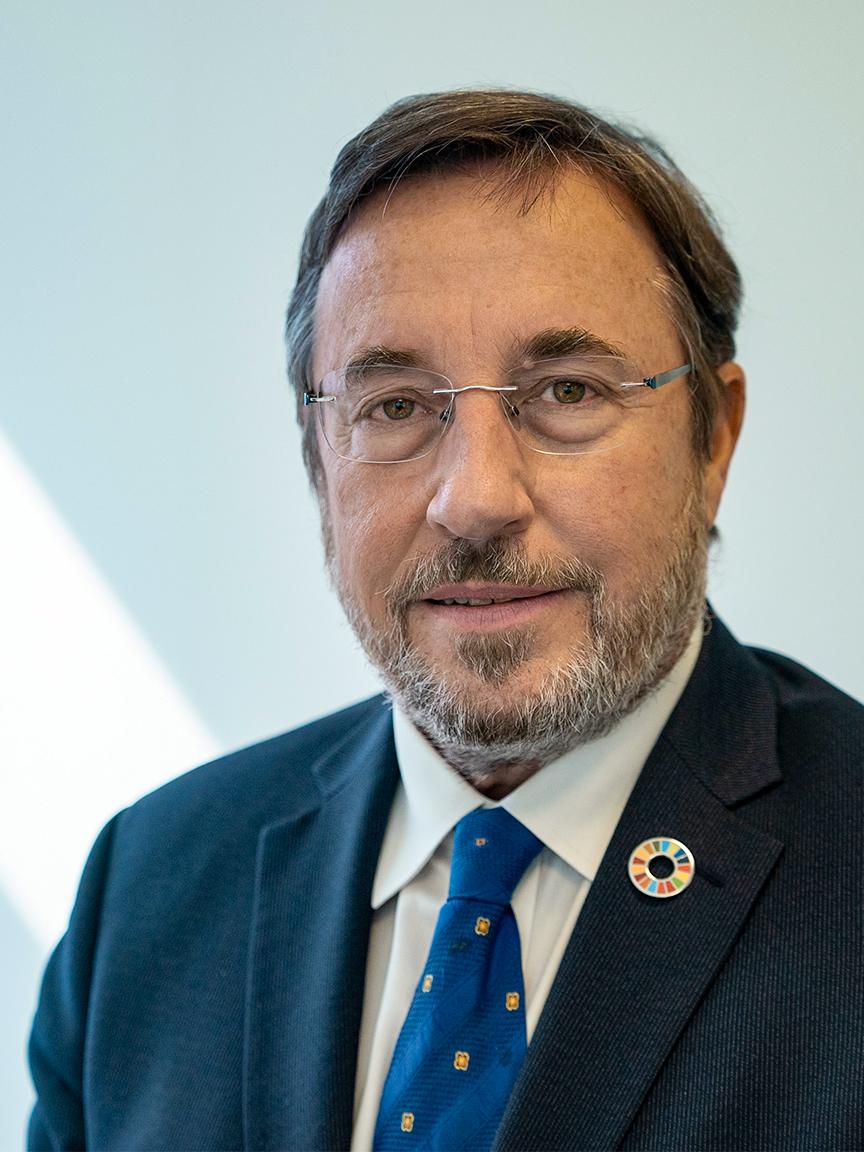 UNDP/Michael Atwood
UNDP/Michael Atwood
Achim Steiner has been Administrator of the United Nations Development Programme (UNDP) since 2017. He has lived and worked in Africa, Asia, the Middle East, Europe, Latin America and the United States.
‘The UN was not set up to bring the world together when all is well. Instead, it needs to take action primarily when it is particularly urgent that problems are solved jointly.’
In times like these, surely poorer countries need more support rather than less?
Yes, actually, they do. These are very challenging times for developing countries, but also for the donor countries and their budgets. There have been huge shifts in the wake of challenges such as support for Ukraine and financing to cover the costs of refugees in OECD countries, with funding originally earmarked for Africa in particular being reallocated. Along with the debt burden, this is leading to a chronic shortage of investment in almost all the SDGs. I think we are making a big mistake if we believe we can solve the large-scale mutual problems of our time with a relatively small budget. The OECD countries have allocated a mere 0.37 per cent of their gross domestic product to address these challenges – and that includes support for Ukraine. Transformation towards greater economic, social and environmental sustainability will only be successful if we invest with and in one another.
What hopes do you have of the forthcoming summits in this difficult situation?
The UN was not set up to bring the world together when all is well. Instead, it needs to take action primarily when it is particularly urgent that problems are solved jointly. That is why I hope that the Pact for the Future will be a confirmation of the internationally agreed goals and will provide a boost for the remaining five years. One of the key results of the Summit of the Future will be a Global Digital Compact, an international framework designed to define guidelines for an increasingly digital world and to provide regulatory support for these technological developments.
What do you hope that the new Hamburg Sustainability Conference will achieve?
The idea for Hamburg draws on the Munich Security Conference. The significance of the latter for security issues every year – and the high-level guests it manages to attract – will hopefully be matched once a year in Hamburg for the sustainability sector in future: the idea behind it is to bring together people from all over the world, representatives of countries but also of the private sector and NGOs, hence generating new impetus and developing mutual prospects. A conference at this level obviously cannot be created overnight; it needs to evolve gradually. But I believe that this can be a great opportunity if we establish a platform for a topic that affects us all and for which we urgently need to find new approaches and forge alliances.
In view of the many changes that have taken place since the SDGs were adopted in 2015, are they still at all relevant?
The world has certainly changed since then, but I would always look at things the other way round: some of today’s problems are actually due to the fact that we haven’t achieved the SDGs sooner. The SDGs are key to reducing crises and conflicts and to facilitating development. Poverty, hunger, inequality and climate change very obviously do not help to diffuse tensions, which is why I believe that the SDGs are even more topical and important than they were back then. However, it is currently impossible to forecast how they will continue to evolve and whether states will still view them as an international framework even after 2030. I cannot anticipate these developments, even though I still believe that the SDGs are the best way to avert a dark and apocalyptic future. But it is also clear that the SDGs are not the goals of the United Nations; the UN enables 193 nations to agree on the framework for joint action, but we all need to implement them – every country, every community, every school, every household and every individual too.
